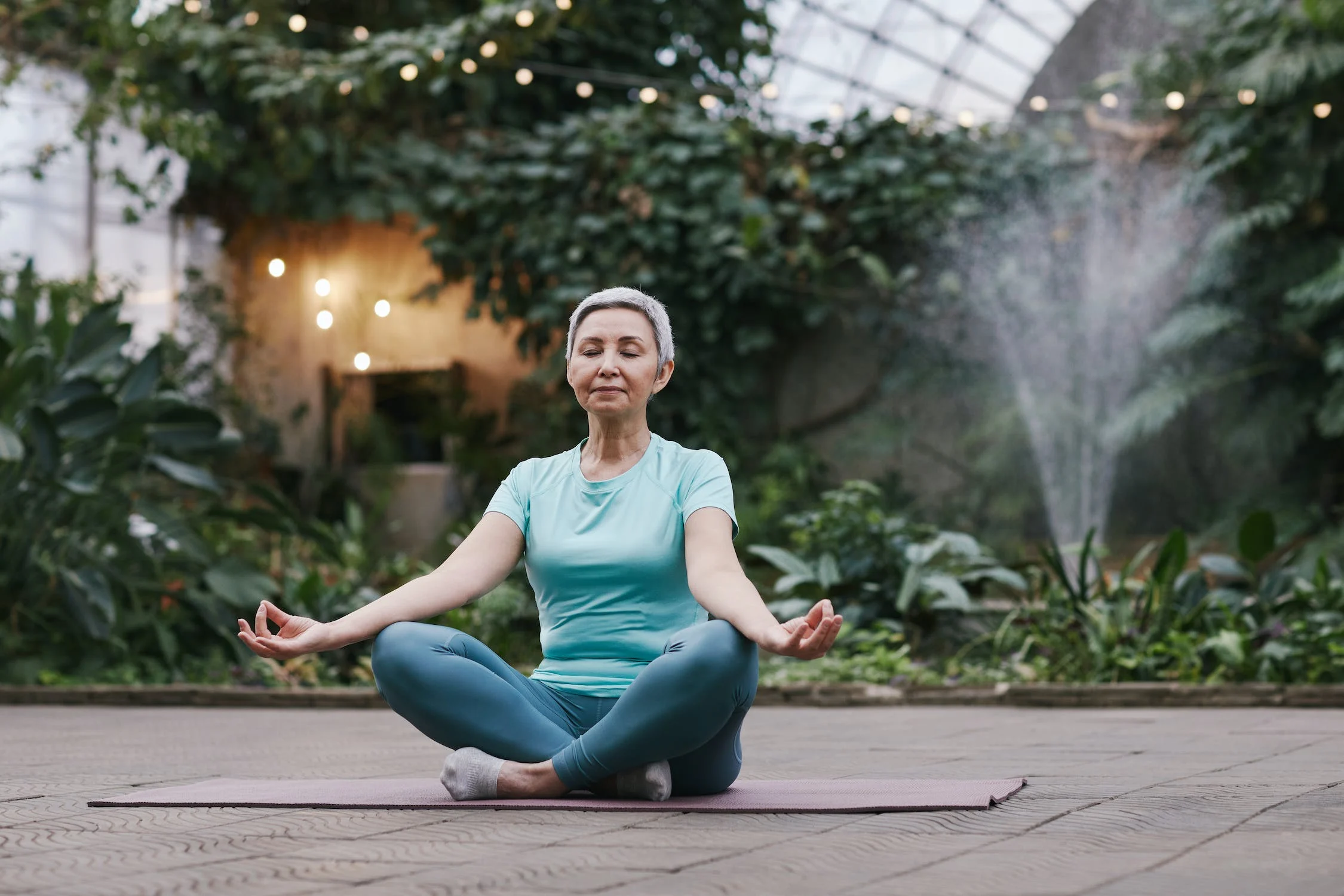10 Effective Strategies for Promoting Senior Mental Health
Alright, let’s kick off our journey into the world of senior mental health with a little heart-to-heart talk. Picture this: life’s a rollercoaster, and we all want it to be a thrilling ride, no matter our age. That’s why the importance of senior mental health can’t be overstated. Just like we take care of our bodies, it’s crucial to look after our minds, especially as we grow older.
Think about it – our golden years should be filled with joy, contentment, and a few well-deserved wrinkles from all the smiling, right? But to make that happen, we’ve got to give mental health the spotlight it deserves.
The Importance of Senior Mental Health
Before diving into the strategies, it’s crucial to understand why mental health matters so much for seniors. Mental health influences every aspect of a person’s life, from their emotional state to their physical health and relationships. Here are some key reasons why senior mental health deserves our attention:
1. Quality of Life
Good mental health is fundamental to having a high quality of life, regardless of how old we are. As seniors, if we maintain our mental well-being then we are more likely to experience joy, satisfaction, and fulfillment in our daily lives.
2. Physical Health
Mental and physical health are intertwined. For us seniors, our mental health issues like depression can worsen physical health conditions and vice versa. A focus on mental well-being can lead to better physical health outcomes for us.
3. Social Connections
Mental health plays a vital role in maintaining all our social connections. As seniors, if we struggle with mental health issues, then we may isolate ourselves, which can lead to loneliness and exacerbate our condition. Strong social connections, on the other hand, promote better mental health.
4. Cognitive Function
Mental health influences cognitive function and memory retention. Seniors who prioritize their mental well-being are more likely to maintain sharper minds and better cognitive function as they age.
Common Mental Health Challenges in Seniors
Now, let’s get into the nitty-gritty of common mental health challenges that seniors often face. Life’s a mixed bag, and sometimes, it throws us a curveball. In this section, we’ll tackle four main players in the world of senior mental health: depression, anxiety, loneliness, and cognitive decline.
- Depression: Often described as the “rain cloud” of mental health, depression can dampen anyone’s spirits, regardless of age. It’s like those gloomy, overcast days that seem to go on forever. But guess what? Sunshine can break through the clouds, and so can the light of hope.
- Anxiety: Ah, anxiety – the little voice in your head that just won’t stop chattering. It’s like your internal worrier on steroids. Anxiety can make even the simplest tasks feel like scaling Mount Everest. But fear not, we’re your trusty Sherpas on this mental mountain.
- Loneliness and Social Isolation: Loneliness can sneak up on you like a silent ninja. It’s that feeling of emptiness even in a crowded room, and it’s something many seniors grapple with. But guess what? Connection is the antidote to loneliness, and we’ve got a treasure trove of ideas to help you build meaningful connections, make new friends, and banish that sense of isolation once and for all.
- Cognitive Decline: Cognitive decline is like a friendly game of hide-and-seek with your own thoughts and memories. Forgetfulness can be frustrating, but it’s also a natural part of aging. Fear not, though; there are ways to keep your mental gears turning smoothly.
So, whether it’s dancing with the blues, wrestling with anxiety, battling the loneliness monster, or outsmarting forgetfulness, we’ve got your back. Let’s explore these common challenges with a sprinkle of humor and a dash of optimism!
Strategies for Promoting Senior Mental Health
- Stay Physically Active – The Mood Lifter: We all know exercise is a magical mood booster, right? Good, then its time to get your groove on with senior fitness activities like walking, swimming, yoga, or tai chi. Not only do they keep those joints limber, but they’ll also give you a much-needed kick to those endorphins – your body’s natural happy pills. Plus, joining group fitness classes is like a party with friends while staying fit!
- Maintain a Balanced Diet – Feed Your Brain: A well-balanced diet isn’t just about physical health; it’s a recipe for a happy mind too! Fruits, veggies, whole grains, lean proteins, and healthy fats – that’s the secret sauce to healthy senior eating. And here’s a fun twist: research tells us that a healthy gut means a happy brain. So, throw in some yogurt and kefir for that extra gut-brain harmony.
- Encourage Social Interaction – Cheers to New Friends: Social isolation? Nope, not on our watch! We’re all about encouraging seniors to get out there and mingle. Clubs, community events, or group activities – these are the tickets to combating loneliness. Even a regular chat on the phone or a coffee date with friends can do wonders for the soul.
- Foster a Sense of Purpose – Find Your Joy: Feeling useful and fulfilled is like a mental health jackpot. Whether it’s volunteering, mentoring, or diving into hobbies, you should do what makes your heart sing. It’s all about having goals and that sense of purpose. Plus, who doesn’t love that feeling of being needed?
- Promote Cognitive Stimulation – Exercise the Brain: We’ve got to keep those mental gears turning! Puzzles, games, reading, and learning new skills are like brain workouts. A sharp mind is a happy mind. And hey, why not explore lifelong learning with some online courses? From art to tech, there’s something for everyone.
- Provide Access to Mental Health Services – Reach Out: Sometimes, we all need a little extra support. Ensure you always have access to mental health professionals who specialize in working with older adults. Teletherapy and telecounseling can make it easier, especially for those with mobility limitations.
- Educate About Mental Health – Let’s Talk: Let’s raise some awareness about senior mental health issues. Many seniors may not know about the help available, or they may shy away due to stigma. Education is the key – workshops, info sessions, and inviting mental health pros to share insights can break down those barriers.
- Address Loneliness – Together We Stand: Loneliness can be a tough nut to crack, especially for us seniors. Pairing up with volunteers or peers for companionship is a brilliant move. These relationships offer emotional support and can beat those isolation blues.
- Support Family Caregivers – They’re Heroes Too: Don’t forget our incredible family caregivers! They play a massive role in seniors’ lives. Let’s give them resources and support to address their mental health needs. After all, a well-rested caregiver is a superhero in disguise.
- Create Age-Friendly Communities – Let’s Build Together: Lastly, let’s champion age-friendly communities. These places prioritize accessibility, safety, and social opportunities for us seniors. Safe walking paths, accessible transport, and senior-friendly recreational spaces – these features can make us feel valued and engaged.
So, there you have it – ten amazing strategies to keep us seniors mentally fit, fabulous, and ready to tackle life’s adventures with a smile. Let’s spread the word and ensure our golden years are truly golden! 🌟
Additional Considerations
1. Medication Management – Keep It in Check
Managing medications can be like organizing a jigsaw puzzle – it takes a bit of finesse. Medication side effects can be sneaky culprits in affecting emotional well-being. Regular check-ins with our healthcare providers can be a game-changer for us. These check-ins help assess how well the meds are really working and whether there are any pesky side effects tagging along for the ride.
Pro Tip – Medication Reviews: Picture this – it’s like having a medication checkup. Periodic medication reviews with healthcare providers can help avoid unnecessary pills and reduce the risk of those “not-so-nice” side effects. It’s all about fine-tuning the medication cocktail for maximum well-being.
2. Sleep Hygiene – Snooze Your Way to Happiness
Ah, sleep – the unsung hero of emotional well-being. Quality sleep isn’t just for beauty; it’s a brain booster too. We’re talking maintaining a consistent sleep schedule, creating a bedroom paradise, and saying “sayonara” to sleep disturbances.
Pro Tip – Addressing Sleep Disorders: Sometimes, sleep can be as elusive as a leprechaun’s pot of gold. For those dealing with insomnia or sleep apnea, it’s time to call in the experts. Healthcare providers can swoop in, evaluate the situation, and provide treatments to bring back those sweet dreams.
3. Reducing Stigma – Let’s Bust Those Myths
Stigma – it’s like the stubborn gum stuck to your shoe. But guess what? We’re not letting it stick around. Let’s work together to reduce the stigma around seeking help for senior mental health issues. Education and awareness are our trusty allies. We want our seniors to know that asking for help is a sign of strength, not weakness.
Pro Tip – Personal Stories: Stories have the power to break down walls. Sharing personal stories of seniors who’ve benefited from mental health support is like an “Aha!” moment. It’s a friendly reminder that they’re not alone in this journey, and help is just a conversation away.
4. Cultural Competence – Embrace Diversity
We’re a colorful bunch, and that’s what makes life interesting. But sometimes, cultural factors can influence how willing us seniors are to seek help. Let’s make sure our mental health services are as diverse as we are. That means providing culturally sensitive care and ensuring that language isn’t a barrier.
Pro Tip – Cultural Awareness: Mental health professionals should be like cultural chameleons, adapting to the unique backgrounds of our seniors. They’ll receive training in cultural competence, helping them understand and serve seniors from diverse backgrounds. It’s all about making everyone feel welcome and understood.
So there you have it, some extra tips to keep our us and our senior friends mentally tip-top! Let’s make sure we all have the support and knowledge we need for a happy and healthy journey through our golden years. 🌟
Conclusion
Promoting senior mental health is an essential endeavor that requires a holistic approach. By incorporating these strategies that address our physical health, social interaction, cognitive stimulation, and access to mental health services, we can help maintain our emotional well-being and enjoy our golden years to the fullest.
Remember that mental health matters at every stage of our lives, and as seniors, we deserve the same level of care and attention as any other age group. By prioritizing our senior mental health, we can enhance the overall quality of life for us as older adults and promote healthy aging in our communities. As we collectively work toward a future where senior mental health is a priority, we pave the way for happier, more fulfilling golden years for all.
Share This Article:






